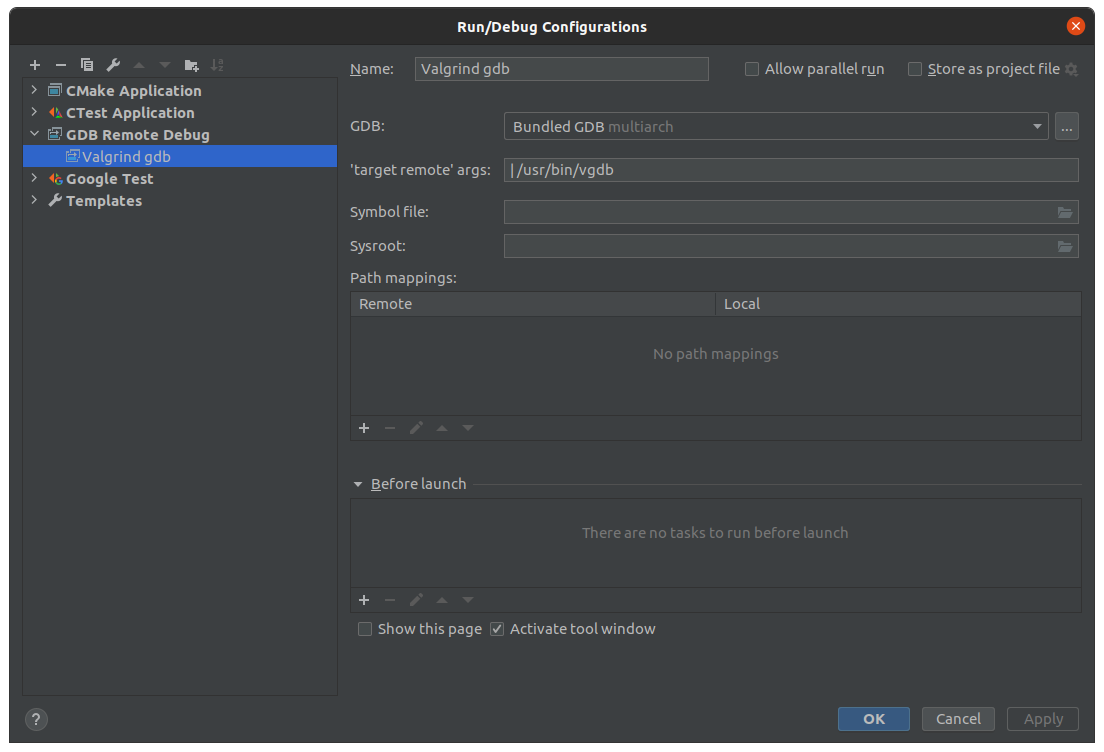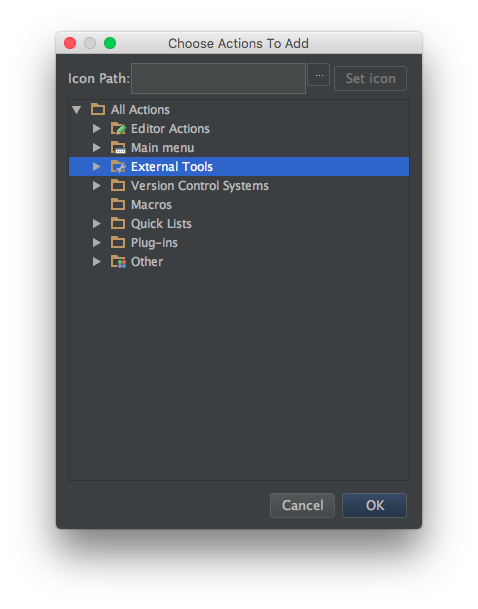

Similar(not quite exact match) free tools on windows are:Ībove mentioned Windows Performance Tools has certain level of L2 cache miss profiling capability but not quite as good and easy to use as Cachegrind. Windows Performance Analysis tools is free from Microsoft, not very easy to use but can get the job done if you are willing to spend the time. If you need more features, AMD CodeAnalyst™ Performance Analyzer is free: My favorite is verysleepy ( ) It is tiny but very useful and easy to use.
#Clion valgrind code
It works from Win2000 to Win7.ĪppVerifier is a must have swissknife for windows native code developers, its "memory" checker does similar job In this field, specify the path to Valgrind excutable home directory, or click to select it in the dialog that opens. And how can I change easily the parameters without going on the 'Edit configuration' panel to add, for example, valgrind options intellij-idea. Use this page to configure Valgrind Memcheck.
#Clion valgrind how to
Valgrind integration in CLion works on Linux, macOS, and Windows with WSL (refer to Valgrind on WSL). I found how to add parameters when I launch my program, but how can I launch valgrind like : valgrind myprogram arg1 -arg2. fsanitizeaddress,undefined to let the compiler add code and checks to report errors at run-time. Is there any other tool I can use for memory leak detection Both GCC and Clang have sanitizers that can be used.
#Clion valgrind install
Install CLion, assuming Msys2 has already been set as above for Windows or necessary programs installed for Mac. Valgrind is not supported in clion on the new Apple Silicon. I have also used UMDH( ) and found it quiet useful and easy to setup. Valgrind Memcheck is a tool that detects memory usage problems such as leaks, invalid memory access-s, incorrect memory releases, and undefined value references. Open terminal use: brew install valgrind cppcheck gcc make cmake emacs gdb wget python3 pip3 install cpplint CLion. My favorite feature is that it groups the same leaks' allocation stacks in the report. This script makes Valgrind analyze your executable in Clion when you name the variable program your executable name, Valgrind will analyze. Good news everyone CLion now comes with Memcheck integration this means you can detect runtime errors and memory leaks right from the IDE. It is a relatively new tool, works very well on Windows 7. I will only mention OSS or free tools here.ĭr. In CLion, navigate to Settings Build, Execution, Deployment Dynamic Analysis Tools Valgrind and provide the subsystem path to Valgrind using the wsl prefix (e.g. Depending which one you are talking about there are different windows counter parts.

In CLion, go to Settings Build, Execution, Deployment Dynamic Analysis Tools. Profiling is supported for CMake and Gradle projects. The profiler is available on Linux and macOS, and the implementation is based on the Perf and DTrace tools respectfully. There is a slight performance hit incurred by this feature for malloc-intensive applications.Īlso here is an example of error reported by Dr.As jakobengblom2 pointed out, valgrind has a suit of tools. valgrind) and provide CLion with the path to the executable (see step 3). With CLion's CPU profiler integration, you can analyze the metrics of performance collected for your application (both kernel and user's code). Toolchain: local / remote / WSL / Docker. Record callstacks on free to use when reporting use-after-free or other errors that overlap with freed objects.

To use Valgrind, perform the following steps: Compile the code with the -g flag, for. From Option Reference: -delay_frees_stack Valgrind is a open-source memory access error and leak detection tool. Memory documentation, there is -delay_frees_stack option with exactly the same Valgrind functionality.


 0 kommentar(er)
0 kommentar(er)
